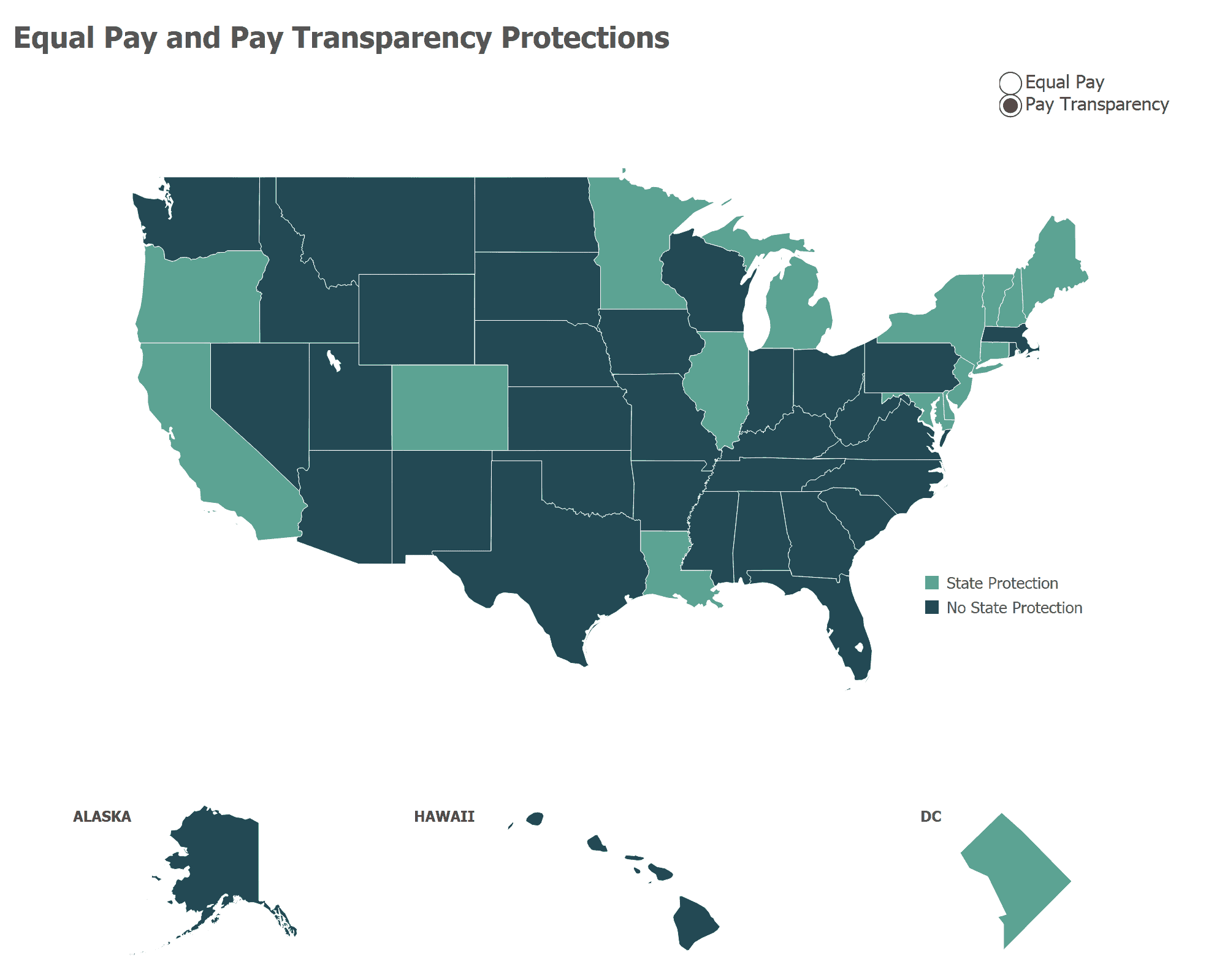Pay Transparency Laws by State

What are pay transparency laws?
Pay transparency laws are regulations put in place to require employers to disclose certain information about employee salaries and compensation. These laws are designed to promote fairness and equity in the workplace, as well as to help close pay gaps between different groups of employees.
Why are pay transparency laws important?
Pay transparency laws are important because they help to ensure that employees are being paid fairly and equitably. When employees have access to information about their colleagues' salaries and compensation, they are better equipped to negotiate for higher pay, and employers are more likely to make fair and equitable compensation decisions.
What are the benefits of pay transparency?
The benefits of pay transparency include:
- Increased employee satisfaction and morale
- Greater equality and fairness in the workplace
- Better retention of talented employees
- Improved negotiation and bargaining power for employees
Pay Transparency Laws by State
As of 2023, several states have enacted pay transparency laws, including:
| State | Pay Transparency Requirements |
|---|---|
| California | Requires employers to disclose salary ranges for open positions |
| New York | Prohibits employers from retaliating against employees who discuss their pay |
| Oregon | Requires employers to provide written notice of pay scales and job opportunities to employees |
| Colorado | Prohibits employers from asking job candidates about their salary history |
What are the drawbacks of pay transparency?
While pay transparency can have many benefits, there are also some potential drawbacks to consider:
- Increased tension and resentment among employees who feel they are not being paid fairly
- Increased pressure on employers to justify compensation decisions
- Potential for employees to become fixated on salary rather than other important aspects of their jobs
- Potential for employers to use pay transparency as a way to justify paying employees less
Conclusion
Pay transparency laws are an important step towards promoting fairness and equity in the workplace. While there are potential drawbacks to consider, the benefits of pay transparency are significant, and many states have already enacted laws to promote it.
FAQs
1. What is pay transparency?
Pay transparency is the practice of disclosing information about employee salaries and compensation to other employees and/or the public.
2. What are the benefits of pay transparency?
The benefits of pay transparency include increased employee satisfaction and morale, greater equality and fairness in the workplace, better retention of talented employees, and improved negotiation and bargaining power for employees.
3. What are the drawbacks of pay transparency?
The drawbacks of pay transparency include increased tension and resentment among employees, increased pressure on employers to justify compensation decisions, potential fixation on salary rather than other important aspects of jobs, and potential for employers to use pay transparency as a way to justify paying employees less.
4. What are some examples of pay transparency laws?
Examples of pay transparency laws include requirements for employers to disclose salary ranges for open positions, prohibitions on retaliation against employees who discuss their pay, and requirements for employers to provide written notice of pay scales and job opportunities to employees.
